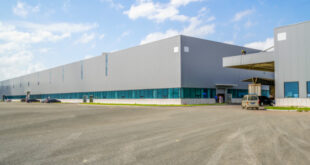Ready to find the perfect commercial space for rent? Our 2025 guide covers types, costs, and tips for leasing office, retail, or industrial properties. Start your search!
Your Essential Guide to Finding the Perfect Commercial Space for Rent in 2025
Finding the right commercial space for rent is a pivotal step for any business, whether you’re launching a startup, expanding operations, or seeking a more strategic location. It’s more than just four walls and a roof; it’s the bedrock of your daily operations and a significant factor in your future success. This comprehensive guide will walk you through everything you need to know in 2025, from understanding different property types to navigating lease agreements. We’ll explore how to identify your needs, where to search, and what to look out for to secure a space that truly works for your US-based business.
Table of Contents
Understanding Your Commercial Space Needs: The First Crucial Step
Before you even start Browse listings for commercial space for rent, it’s vital to have a crystal-clear understanding of your business’s requirements. Jumping the gun here can lead to costly mistakes down the line.
Think about it – what does your business really need to thrive?
What Type of Commercial Space Fits Your Business?
Commercial properties aren’t one-size-fits-all. The primary categories include:
- Office Space: This can range from a single room in a shared building to entire floors in a skyscraper. Consider traditional offices, co-working spaces, or serviced offices. Key factors: employee count, client meetings, desired image.
- Retail Space: Location is paramount for retail. Think about foot traffic, visibility, parking, and proximity to your target demographic. Includes storefronts, mall spaces, and pop-up shops.
- Industrial Space: This category covers warehouses, manufacturing plants, distribution centers, and flex spaces (a mix of office and warehouse). Needs often include loading docks, high ceilings, and specific power requirements.
- Specialty Spaces: Think restaurants, medical clinics, salons, or fitness studios. These often have unique infrastructure needs (e.g., ventilation, plumbing, specific layouts).
How Much Space Do You Realistically Need?
It’s tempting to go big, but more space means higher rent and utility costs. Conversely, too little space can stifle growth.
- For Office: A general rule of thumb in the US is 100-150 square feet per employee, but this can vary based on layout (open plan vs. private offices) and industry.
- For Retail: Consider sales floor area, storage, and back-office needs. Analyze sales per square foot for your industry.
- For Industrial: Factor in inventory, machinery, operational workflows, and potential expansion.
Location, Location, Location: Why It Still Reigns Supreme
The ideal location for your commercial space for rent depends heavily on your business type:
- Accessibility for Clients & Employees: Is it easy to reach by car or public transport? Is there adequate parking?
- Proximity to Suppliers & Partners: Crucial for industrial and some retail businesses.
- Target Audience Demographics: Especially important for retail and service-based businesses.
- Zoning Regulations: Ensure the area is zoned for your type of business activity. Local US city and county zoning laws are critical here.
- Safety and Security: For your assets, employees, and customers.
Starting Your Search for Commercial Space for Rent
Once you’ve defined your needs, it’s time to find available properties. The search for commercial space for rent can feel daunting, but there are many resources available.
Online Commercial Real Estate Platforms
Numerous websites specialize in commercial listings. Popular US-based platforms include LoopNet, CoStar (often used by brokers), and Crexi. These sites allow you to filter by location, property type, size, and price.
Commercial Real Estate Brokers
A good broker can be invaluable. They have access to off-market listings, understand local market conditions, and can assist with negotiations. Look for brokers who specialize in the type of commercial property you need in your specific US city or region.
Networking and Local Inquiries
Sometimes, the best spaces are found through word-of-mouth or by simply driving around your target neighborhoods and looking for “For Lease” signs. Talk to other business owners in the area.
Considering Professional Guidance
Navigating the complexities of commercial leases and market conditions can be overwhelming. For many businesses, partnering with experts can provide clarity and confidence. If you’re looking for expert guidance in securing your ideal commercial space, exploring specialized real estate services like those offered by Nexmove can streamline your search and negotiation process.
Key Factors to Evaluate When Considering a Commercial Lease
You’ve found a few potential spaces. Now, it’s time for due diligence. Here’s what to scrutinize before signing on the dotted line for your commercial space for rent:
The True Cost: Beyond Base Rent
The advertised rent is just the starting point. Understand all associated costs:
- Base Rent: The fundamental cost per square foot.
- Operating Expenses (NNN or CAM): These are “Triple Net” (NNN) or Common Area Maintenance (CAM) charges. They cover property taxes, insurance, and maintenance for common areas. This can add a significant amount to your monthly payment. Always ask for a detailed breakdown.
- Utilities: Who pays for electricity, water, gas, internet?
- Security Deposit: Typically one to three months’ rent, but can be higher.
- Tenant Improvements (TI): Who pays for necessary build-outs or modifications to the space to suit your needs? This is a major negotiation point.
Lease Terms and Conditions: The Fine Print Matters
Commercial leases are complex legal documents. It’s highly recommended to have an attorney review any lease agreement before you sign. Pay close attention to:
- Lease Duration (Term): Typically 3-10 years for commercial leases. Shorter leases offer flexibility but may come at a higher rate. Longer leases provide stability.
- Renewal Options: Does the lease include options to renew, and under what terms?
- Rent Escalation Clauses: How much will the rent increase each year? This is common.
- Use Clause: Specifies exactly how you can use the space. Make sure it aligns with your current and future business plans.
- Sublease/Assignment Clause: Can you sublet the space or assign the lease to another party if your needs change?
- Default and Remedies: Understand the consequences of breaching the lease.
- Repair and Maintenance Responsibilities: Clearly define who is responsible for repairs to the structure, HVAC, plumbing, etc.
The Physical Condition of the Space
Inspect the property thoroughly. Consider:
- HVAC System: Age, condition, and efficiency. Repairs can be very costly.
- Plumbing and Electrical Systems: Adequacy for your needs.
- Roof and Structure: Any signs of leaks or damage?
- ADA Compliance: Is the space accessible as required by the Americans with Disabilities Act? If not, who is responsible for upgrades?
Negotiating Your Commercial Lease Agreement
Don’t be afraid to negotiate. Many terms in a commercial lease are negotiable, especially in a tenant-favorable market.
Key Negotiation Points for Your Commercial Space Lease
- Rental Rate and Escalations: Try to secure the lowest possible base rent and cap annual increases.
- Lease Term and Renewal Options: Negotiate for a term that suits your business plan with favorable renewal options.
- Tenant Improvement Allowance: This is a crucial area. Negotiate for the landlord to cover a significant portion, if not all, of the costs to customize the space.
- Free Rent Periods: It’s common to negotiate for a few months of free rent at the beginning of the lease, especially if you’re undertaking significant build-outs.
- Operating Expense Caps: Try to cap your contribution to operating expenses.
- Exclusivity Clause: For retail, an exclusivity clause can prevent the landlord from renting space to a direct competitor in the same complex.
Working with an experienced commercial real estate broker or attorney can significantly strengthen your negotiating position. Remember, securing a favorable lease on your commercial space for rent can save your business thousands of dollars over the term.
The Final Steps: Signing and Moving In
Once negotiations are complete and you’re satisfied with the terms:
- Final Lease Review: Have your attorney conduct a final review of the lease document.
- Insurance: Secure the necessary business and liability insurance as required by the lease.
- Secure Permits: Obtain any necessary permits for your business operations and any planned build-outs. Check with your local US city or county government.
- Plan Your Move: Coordinate logistics for moving, setting up utilities, and installing equipment.
Finding and leasing commercial space for rent is a significant undertaking, but with careful planning, thorough research, and smart negotiation, you can find a space that propels your US-based business forward.
Frequently Asked Questions
What is the average cost of commercial space for rent in the US? The cost varies dramatically based on location (city/state), property type (office, retail, industrial), class of building (A, B, C), and market conditions. For instance, prime office space in New York City or San Francisco can be significantly more expensive than warehouse space in a smaller Midwestern city. It’s best to research specific markets. As of early 2025, you might see average national figures ranging from $15 to $70+ per square foot per year, but local variances are huge.
How long are typical commercial lease terms? Commercial leases typically range from 3 to 10 years. Shorter terms (1-2 years) might be available for smaller spaces or in certain market conditions but often come at a premium. Landlords prefer longer terms for stability.
What is a ‘Triple Net’ (NNN) lease for commercial properties? In a Triple Net (NNN) lease, the tenant is responsible for paying not only the base rent but also their pro-rata share of the property’s operating expenses: property taxes, building insurance, and common area maintenance (CAM) costs. This is a common type of lease for commercial space for rent.
Can I negotiate the terms of a commercial lease? Absolutely! Nearly all terms in a commercial lease are negotiable. Key areas include rent, lease term, tenant improvement allowances, renewal options, and operating expense caps. It’s highly advisable to have a broker or attorney assist with negotiations.
What are Tenant Improvements (TI) in a commercial lease? Tenant Improvements are the changes or alterations made to a commercial space to configure it for the specific needs of a tenant. The cost and responsibility for TIs are a significant negotiation point in a commercial lease agreement. The landlord might offer a TI allowance, which is a certain amount of money to help cover these costs.
Conclusion: Securing Your Business’s Future Location
Finding the right commercial space for rent is more than a transaction; it’s a strategic business decision that impacts your operations, brand, and bottom line. By thoroughly understanding your needs, diligently researching options, carefully evaluating lease terms, and negotiating effectively, you can secure a space that supports your business’s growth and success in the dynamic US market. Remember to consult with legal and real estate professionals to navigate the complexities involved.
The journey to finding your ideal commercial space may seem complex, but breaking it down into manageable steps makes it achievable. With the right approach, you’ll soon be unlocking the door to your business’s new home. For personalized assistance and access to listings in your target area, consider reaching out to professionals who specialize in commercial real estate. Nexmove offers comprehensive services to help businesses like yours navigate the commercial leasing process. You can reach them at [Phone Number from nexmove.us] or [Email from nexmove.us] for more information.
Take the Next Step
Ready to find the perfect commercial space for your business? Don’t navigate the market alone. For expert advice, tailored listings, and negotiation support for commercial properties across the USA: For more information, visit https://nexmove.us/. Contact the Nexmove team today at [Phone Number from nexmove.us] or [Email from nexmove.us] to discuss your commercial real estate needs.
 NexMove Home & Investment Guide Find Your Perfect Property, Invest Wisely.
NexMove Home & Investment Guide Find Your Perfect Property, Invest Wisely.




